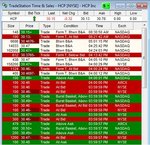oildaytrader
Senior member
- Messages
- 2,806
- Likes
- 125
If you are saying that a fund manager will purposely sell something below it's market value to benefit the buyer at the detriment of his employer, I think you have been misled. This would be a form of embezzlement.
.
Embezzlement and fraud are hallmarks of Wall Street insiders.Out of 60 million people in the U K , only a few thousand get caught and go to prison.The rest are free and the same proportion is free on Wall street.
Multiple fees charged to pension funds
http://www.zimbio.com/Hank+Greenberg/articles/5/Former+AIG+Execs+Agree+Lawsuit+Settlement

